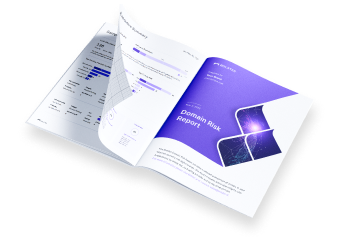What can a site scanner do?
A site scanner is an important tool for IT security and risk management professionals. It is designed to analyze websites and identify potential vulnerabilities and security risks. Here are some key functions and benefits of using a site scanner:
1. Vulnerability Detection: A site scanner can detect various vulnerabilities such as outdated software versions, weak passwords, misconfigurations, and insecure coding practices. By identifying these vulnerabilities, it helps organizations to proactively address them before they are exploited by hackers.
2. Malware Detection: Site scanners can scan websites for any signs of malware infections or malicious code. This is crucial as malware can compromise the security of a website, steal sensitive information, and harm visitors. Detecting and removing malware promptly is essential to maintain website integrity and protect users.
3. Security Compliance: Site scanners can assess websites against industry standards and best practices, such as the Payment Card Industry Data Security Standard (PCI DSS) or General Data Protection Regulation (GDPR). It helps organizations ensure that their websites meet the required security standards and avoid potential legal and financial consequences.
4. Blacklisting Monitoring: Site scanners can monitor if a website’s IP address or domain has been blacklisted by search engines or security vendors. Being blacklisted can significantly impact a website’s visibility and reputation. By promptly addressing the cause of blacklisting, organizations can safeguard their online presence and maintain user trust.
5. Performance Optimization: In addition to security, site scanners can also analyze the performance of a website, such as page load speed and response time. This is crucial for improving user experience and SEO ranking. By identifying and fixing any performance issues, you can ensure that your website is fast and responsive, leading to higher customer satisfaction and better search engine visibility.
6. Vulnerability Detection: Website scanners are designed to detect any vulnerabilities or weaknesses in your website’s code and configuration. This includes potential entry points for hackers, such as outdated software, weak passwords, or misconfigured security settings. By identifying these vulnerabilities, you can take proactive measures to patch or fix them before they are exploited by malicious actors.
7. Compliance and Regulations: Many industries have specific compliance requirements and regulations that websites must adhere to. Website scanners can help assess your website’s compliance with these regulations, such as the General Data Protection Regulation (GDPR) or the Payment Card Industry Data Security Standard (PCI DSS). By ensuring compliance, you can avoid costly penalties and maintain the trust of your customers.
8. Risk Management: Website scanners play a crucial role in risk management by continuously monitoring your website for potential threats and vulnerabilities. By regularly scanning your website, you can identify and mitigate risks in a timely manner, minimizing the chances of a security breach or data loss. This proactive approach to risk management is essential in today’s rapidly evolving threat landscape.
9. Reputation and Trust: A secure website is essential for building and maintaining a strong reputation and trust with your customers. With website scanners, you can demonstrate to your customers that you take their security and privacy seriously. This can help increase customer confidence in your brand and encourage them to continue doing business with you.
10. Protection against Cyber Attacks: Websites are a prime target for cyber attacks, such as malware infections and data breaches. By regularly scanning your website for vulnerabilities and weaknesses, you can identify and fix any potential security holes before they can be exploited by hackers. This proactive approach can significantly reduce the risk of a successful cyber attack.
By conducting regular website scans, organizations can proactively identify and address these vulnerabilities before they are exploited. This not only helps protect sensitive data and systems but also ensures compliance with industry regulations and standards.
About CheckPhish
CheckPhish is the place to start for domain monitoring. CheckPhish is a real-time URL and website scanner. Once a URL is submitted, our engine spins up an automated headless browser to capture a live screenshot, natural language content on the webpage, DOM, WHOIS, and other essential information. The engine sends this information to multiple deep learning models in the backend that can recognize essential signals like brand logos, sign-in forms, and intent. Our engine then combines these signals with our proprietary threat intel data to identify phishing and scam pages.






